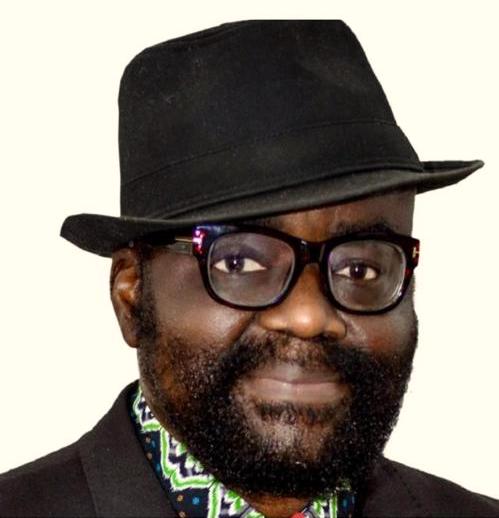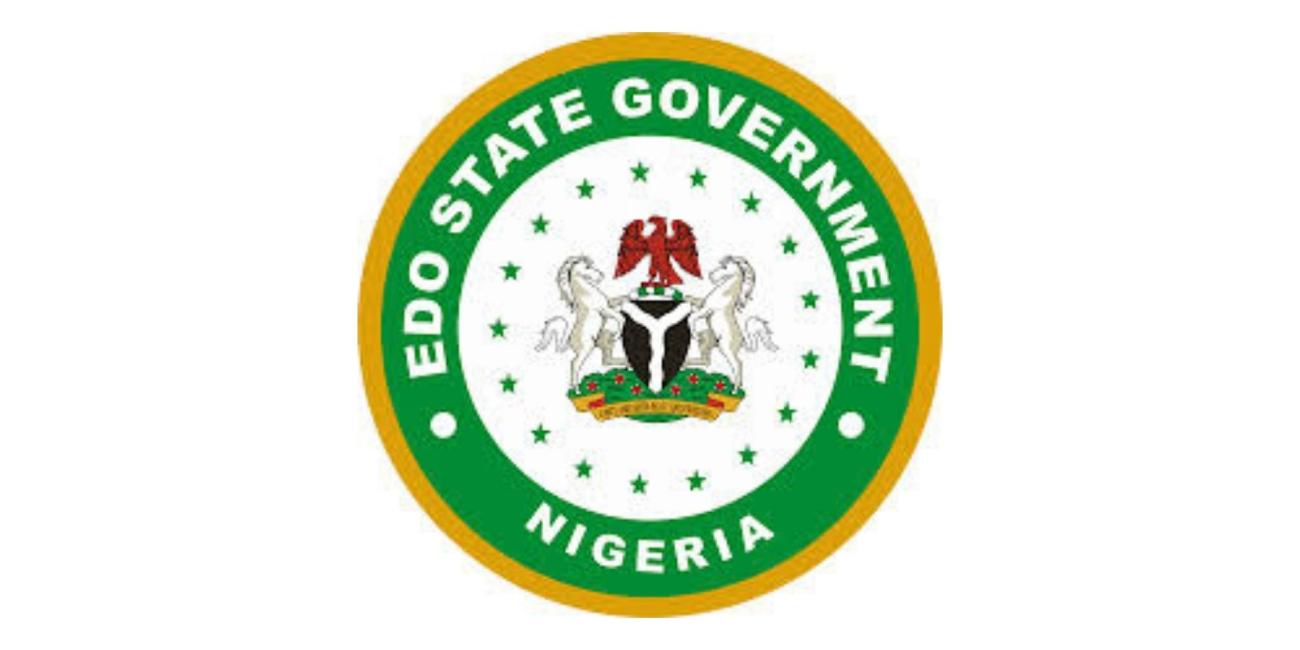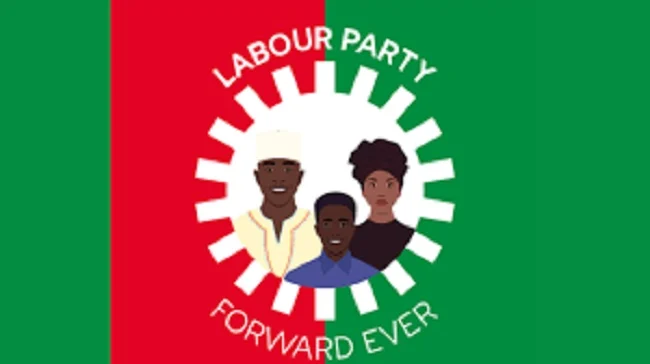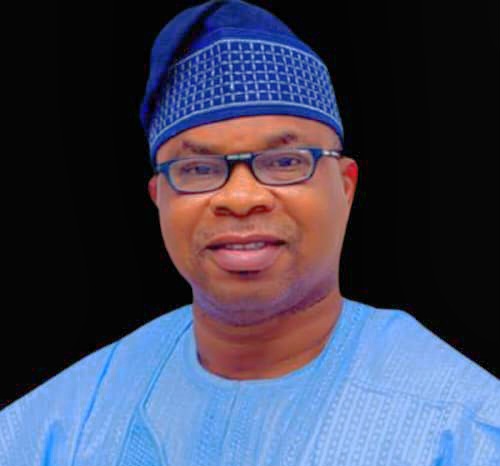Opinion
June 12’s Glorious Payback, Says Olaoye

Thank you, Mr. President. If any seer had predicted in 1993 that a day would come when the heroes of the June 12 struggle would be honoured, such a crystal gazer would have been labelled a fraud. Everything was loaded against the pro-democracy groups. Many of those operating under the radar lived in trepidation. The fear of Col. Omenka, the dread of every editor and reporter, was the beginning of wisdom. I remember that on one occasion when he sent his boys to scatter Academy Press on the suspicion that the next edition of MONTHLY LIFE was going to carry a story not favourable to the Abacha government, I was simply whisked to Apapa. Some people taken away like that never returned.
The Abacha season was the era the vultures ate.
RESTORATION
The restoration of June 12 to our national remembrance happened two years ago when President Buhari, on the prodding of his political allies led by Tinubu, kept a date with history by acknowledging the truth about the 1993 elections squarely won by Chief MKO Abiola. He apologised to the pro-democracy groups on behalf of Nigeria and bestowed national honours on the winner and his running mate, Babagana Kingibe. Buhari also changed Nigeria’s Democracy Day from May 29 (the day the military handed over to democratically elected leaders) to June 12, the day the 1993 election that would have ushered in Abiola’s presidency, was conducted.
Last year, President Tinubu hosted some programmes to mark the day, culminating in a dinner well attended by veterans of the democracy struggle. The 2025 edition, however, witnessed the rolling out of a honours list in which various categories of national awards were conferred on many of those who had been in the trenches during the democratic struggle. I congratulate those who made the list. It’s payback time for their sacrifice. But there are many names missing. The presidency has promised to compile a fuller list.
I was particularly delighted by the recognition given to late Prof. Humphrey Nwosu, the man who conducted the election. In my advocacy on the matter last year when Nwosu was still alive, I wrote as follows: “Abiola would not have been the hero he turned out to be if Nwosu had not conducted the most transparent election in Nigeria. No election before or after that epochal electoral exercise has come close to Nwosu’s Option A4 in transparency and acceptability!” Better late than never!
COL. ABUBAKAR DANGIWA
Another prominent person who is yet to be accorded the recognition due to him is Col. Abubakar Dangiwa Umar (rtd) an officer who lost his commission because of his insistence that his bosses do the right thing. In an interview he granted TELL magazine which I quoted in my article titled, “For Abubakar Dangiwa Umar @ 75”, he had made several revelations about the plot to bury the June 12 agitation.
Excerpts: What eventually transported Umar to the pantheon of authentic role models, instructively, wasn’t his soldiering heroics or administrative ingenuity but his loyalty to principles and devil-may-care courage in confronting his bosses at a time when such a posture could have led to a kangaroo court marshal and, possibly, summary execution.
In a rare interview with TELL magazine, he made some startling revelations… In the midst of all the sacrifice and personal risk, there were people who still thought that Umar’s steadfastness was too good to be true:
“Sadly enough, people keep wondering how, for goodness sake, can a Fulani man from the Sokoto royal family really fight for the interest of a Yoruba man (over the June 12 issue). There are
people that are skeptical because of my geographical extraction, because of who I am, my personality. They cannot believe that I could support the cause of June 12 if that means swearing in a Yoruba man. What they don’t understand, the point they miss, is that one is not fighting purely for a Yoruba man. One is fighting for justice. One is fighting for truth and truth really has a universal language.”
NADECO
The National Democratic Coalition (NADECO) was, at a time, the main umbrella under whose shade many democratic activists found accommodation. President Tinubu himself sponsored many of NADECO’s activities. Indeed, at last year’s Democracy Day dinner, Prof Bolaji Akinyemi disclosed that several of his trips to promote the democratic cause abroad were sponsored by Asiwaju Tinubu.
There is no reason why ALL the 49 founding signatories at the formation of NADECO would not be on the honours list. The 49 signatories were: Chief Michael Adekunle Ajasin (Leader), Mallam Lawal Dambazzau, Commodore Ebitu Ukiwe, Chief Anthony Enahoro (Deputy Leader), Major General Adeyinka Adebayo (retd.), Chief Bola Ige, Commodore Dan Suleiman, Dr Chukwuemeka Ezeife, Professor Anya O. Anya, Colonel Yohanna Madaki, Reverend Father Moses Adasu, Dr Beko Ransome-Kuti, Reverend Tunji Adebiyi, Chief Ade Ojo, Chief Ralph Obioha, Chief Empire Kanu, Chief Michael Anyiam, Dr. Sola Soile, Vice Admiral Akin Aduwo, Chief E. Duru, Mr. Nick Dazzang, Mr. Labaran Maku, Dr A. A. Akingba and Mr Babas Eko Oyekanmi.
Also on the list were: Mr Alex Ayatolla, Mrs Sarah Jubril, Alhaji Ganiyu Dawodu, Mr O. P. Edodo, Mr A. Barber, Otunba Olabiyi Durojaiye, Chief Olusegun Osoba, Chief John Odigie-Oyegun, Prof. Bolaji Akinyemi, Alhaji Mohammed Siraj Hamza, Dr. Wahab Dosunmu, Otunba Aboyade Cole, Major General Olufemi Olutoye (rtd), Chief Sobo Sowemimo, Dr. Steve Achema, Chief Olaniwun Ajayi, Chief Olu Falae, Brigadier-General Jonah Jang, Chief Abraham Adesanya, Chief Ayo Adebanjo, Mr. Alao Aka-Bashorun, Mr. Emmanuel Njiwah, Chief Vincent Nwizugbo and Dr. Uma Eleazu.
The list of other prominent NADECO leaders would include Mr. Ayo Opadokun, Mr. Wale Osun, General Alani Akinrinade, Femi Falana, Senator Bola Tinubu, Lam Adesina, Chief Segun Adegoke, Chief Adebayo Adefarati, Clement Nwankwo, Rear Admiral Ndubuisi Kanu and Senator Kofo Bucknor Akereleto among others (Source: “Battle lines: Adventures in Power” by Olusegun Osoba).
In my piece last year, I also remembered some of those whose paths crossed mine as we navigated the treacherous minefield of Nigerian journalism and social activism at the time: If I may remember some of those whose paths crossed mine in those days of goggled evil: Nze Mark Odu, BK Ogala, Moshood Fayemiwo, Jimmy Imo, Joe Igbokwe, Eddy Okparaoji, among others.
BAGAUDA KALTHO
The joy that President Tinubu has put in the hearts of some activists’ families is unquantifiable. Take the case of the family of Bagauda Kaltho, an investigative journalist who was eliminated by agents of the military government while claiming that he wasn’t in their custody. Terrible things happened in those days and it is good to remind ourselves of those things so that we don’t fall back into those traps. Military rule is Golgotha. That aberration ate some of the most productive years of my generation.
Bagauda Kaltho, an investigative journalist as good as they came in those competitive days, was kidnapped and murdered by agents of the military government. Then, they spread all sorts of scandalous stories about him hoping to thereby duck the scent of death hanging over them. That was a couple of days after Ken Saro-Wiwa had been judicially murdered by the same military government. Those were, indeed, the days of the vultures.
Kaltho’s wife was full of praises for the recognition accorded her late husband at last. “My husband disappeared sometime between late 1996 and early 1997 in line of duty. This national honour is not only a validation of my husband’s unwavering commitment to truth, justice, and the defence of democratic ideals, but also a powerful reminder that the sacrifices of those who speak truth to power are never forgotten,” she said. And I say its payback time for goodness.
Newsdiaryonline.com
Opinion
Edo State To Spend N1billion On Armoured Car For Speaker, N4.6billion On Vehicles For Lawmakers

The budget also reveals that N4.6 billion is planned for vehicles for the 25 members of the State House of Assembly.
Reporters’ review of the Edo State approved budget for 2026 shows that N1billion has been allocated to purchase an armoured vehicle for the Speaker of the State House of Assembly.
The budget also reveals that N4.6 billion is planned for vehicles for the 25 members of the State House of Assembly.
Also, N50million is planned for the purchase of refrigerators and other equipment for four directors. The House of Assembly Commission also plans to spend 200 million naira on roof and window replacement for its office building.
Earlier, a civic accountability group, MonITng, raised concerns over the execution of a multi-million-naira education project in Edo State, citing poor quality, procurement irregularities, and a recurring pattern of questionable contract awards.
“A project titled ‘Building of Blocks of Classrooms at Ojah Comprehensive High School, Akoko LGA, Edo State’ with project code ZIP20240448, valued at ₦222,000,000.00, and awarded under the Federal Polytechnic Auchi, Federal Ministry of Education, has raised serious concerns about the quality of execution, contract pricing, and procurement integrity.”
According to MonITng, its team tracked and inspected the project site. “Our team tracked and visited the project site and confirmed that although the classrooms were completed, they were poorly constructed.”
The group further noted: “The structure lacks basic finishing elements such as landscaping, proper drainage, and standard finishing works, all of which should have been included and adequately executed, given the huge sum budgeted for the project.”
It added that “the poor quality of work raises questions about project supervision, contract oversight, and how the allocated funds were spent.”
MonITng also linked the project to a contractor allegedly tied to multiple controversial contracts. “Even more troubling is the pattern we uncovered. The project was executed by Sam Sedi Nig. LTD, a company that has consistently received major contracts facilitated by Senator Adams Oshiomhole.”
The group claimed that “this same contractor handled the abandoned ERGP20245252 project, Construction of Warake to Ivbiaro Road in Owan East LGA, valued at ₦200,000,000.00, which remains incomplete despite significant disbursements.”
“Additionally, the same company implemented a controversial agricultural empowerment programme in Etsako communities, also facilitated by Senator Oshiomhole.”
MonITng alleged that “the recurring involvement of this contractor in multiple projects, combined with substandard delivery and abandoned works, suggests a pattern of procurement manipulation, inflated contracts, and possible diversion of public resources.”
It added that “the situation reflects how public projects, although completed on paper, often fail to deliver a meaningful impact due to corruption, poor supervision, and a lack of accountability.”
Opinion
APC E-registration Plot To Manipulate 2027 Polls – Ogun LP

The Ogun State chapter of the Labour Party has accused the All Progressives Congress of using its ongoing electronic membership registration to allegedly manipulate figures ahead of the 2027 general elections.
In a statement issued on Wednesday, the state chairman of the Labour Party, Chief Oluwabukola Soyoye, claimed that the APC’s e-registration exercise was designed to digitally inflate its membership strength and project a false image of popularity in the state.
Soyoye alleged that the ruling party had resorted to electronic registration because it could no longer mobilise people openly, insisting that the administration of Governor Dapo Abiodun had suffered widespread rejection due to what he described as underperformance.
According to him, the APC’s e-registration, presented as a routine membership drive, was in reality “a political referendum that exposes the deep rejection of Governor Dapo Abiodun and his black-market style of governance by the people of Ogun State.
“The people of Ogun are now wiser. They have deliberately refused to participate in any open, physical APC registration because they know the ruling party has failed them,” Soyoye said.
“That is why the APC has resorted to this so-called electronic registration — a system that allows figures to be fabricated behind closed doors without the presence of real members.”
The LP further alleged that the electronic platform could be used to manipulate membership data, inflate figures and create a misleading narrative of political dominance ahead of 2027
“What we are witnessing is not a genuine political exercise but a fraudulent digital operation designed to manufacture legitimacy for a government that has lost the confidence of the people,” Soyoye added.
Opinion
Let These Campaigns Of Calumny Against AMBO Stop Forthwith

By Kola Odepeju
“Calumny Is Only The Noise Of Madmen” –Diogenes
As Osun state gubernatorial election draws nearer, we’re now at the dawn of the campaigns for the coming election and so as characteristic of Nigeria’s democracy, wrong accusations, blackmails, character assassinations and all manner of negative campaigns aimed at demarketing the most popular candidate with the highest chances of coasting home to victory in a major election of this nature, must surface. And so in our own dear Osun state here this ugly trend has started surfacing. The mudslinging that has started from Governor Ademola Adeleke’s Accord Party’s camp against the APC gubernatorial candidate, Asiwaju Munirudeen Bola Oyebamiji AMBO is ‘normal’ and expected because with the massive support for AMBO across the nook and cranny of the state, it’s crystal clear that he’s the candidate to beat.
As mentioned above, a candidate to beat in any major election is bound to face vilifications by his opponents who see him as a threat and a stumbling block against the success of their own ambitions. Therefore given the nature of our politics in this part of the world, the negative campaigns that have started against AMBO are no surprise. We witnessed the same thing against the incumbent president, Asiwaju Bola Tinubu during the 2023 electioneering campaigns for the office of the country’s president. But against all odds, Asiwaju Tinubu emerged victorious. So as Asiwaju Tinubu emerged victorious in 2023, l have that strong conviction that our own Asiwaju Bola Oyebamiji will also become victorious in the coming August gubernatorial election in the state irrespective of whatever negative campaigns that may come up against him. This is because the AMBO governorship project is divinely ordained.
Amongst other attacks that are still likely to come up against him as we face the election and as the election faces us, we have heard from those who are afraid of losing power that AMBO is the architect of half salaries in Osun (as if he was the governor in that era). We have also heard from them that he’s not youth-friendly. The spokesperson to governor Adeleke, Malam Olawale Rasheed also amplified these two negative points in his latest article aimed at demarketing AMBO. Like I mentioned, the negative campaigns have just started. We are still going to hear more. I wonder why people cannot engage in issues-based campaigns instead of vilifying candidates.
Ambo has told Osun youths the program he has for them. He has promised to take care of them. And as a God-fearing and honest leader who keeps to his words, l believe he will not renege on his promise for the youths and also his promises for Osun people generally. So let those who revel in vilifying a credible candidate like AMBO tell Osun youths the programs they have for them rather than calumniating a visionary and capable leader who has what it takes to deliver the goods. Of course AMBO – being a focused leader – needs not to bother himself about the negative campaigns being circulated against him by his political detractors because William Shakespeare had for long told us that “*Be thou as chaste as ice, and as pure as snow, thou shall not escape calumny*”. And George Washington also mentioned it that “*Silence is the best answer to false accusations*”.
Finally, the Yorubas in their words do say that “maligning the honey doesn’t reduce its sweetness”. No matter the level of negative campaigns against the APC gubernatorial candidate towards the election, it won’t reduce the love the Osun people have for him while it won’t deter them from casting their votes for him in the upcoming gubernatorial election in the state. He will surely come out victorious by the special Grace of God Almighty 🙏. For, Vox populi vox dei. AMBO should continue on the path of issues-based campaigns and close his eyes against malignant talks by those who are already on their way out of power.
● Odepeju, newspaper columnist and political activist, writes from Iragbiji, Osun state.
-

 Politics2 days ago
Politics2 days agoAssembly Confirms Popular Redeemed Pastor As Deputy Governor
-

 Foreign1 day ago
Foreign1 day agoCabinet Reshuffle: President Sacks Finance Minister
-

 Business1 day ago
Business1 day agoJUST IN: 13 Banks May Shut Down In March As CBN Confirms 20 Safe For Recapitalisation Deadline
-

 Politics1 hour ago
Politics1 hour agoBREAKING: “Serial Disrespect” Sparks Drama As Senate Order Arrest Of Tinubu’s Appointee
-

 Politics1 hour ago
Politics1 hour agoOpposition Leaders Urge N’Assembly To Begin Fresh Electoral Act Amendment
-

 Opinion1 hour ago
Opinion1 hour agoEdo State To Spend N1billion On Armoured Car For Speaker, N4.6billion On Vehicles For Lawmakers




